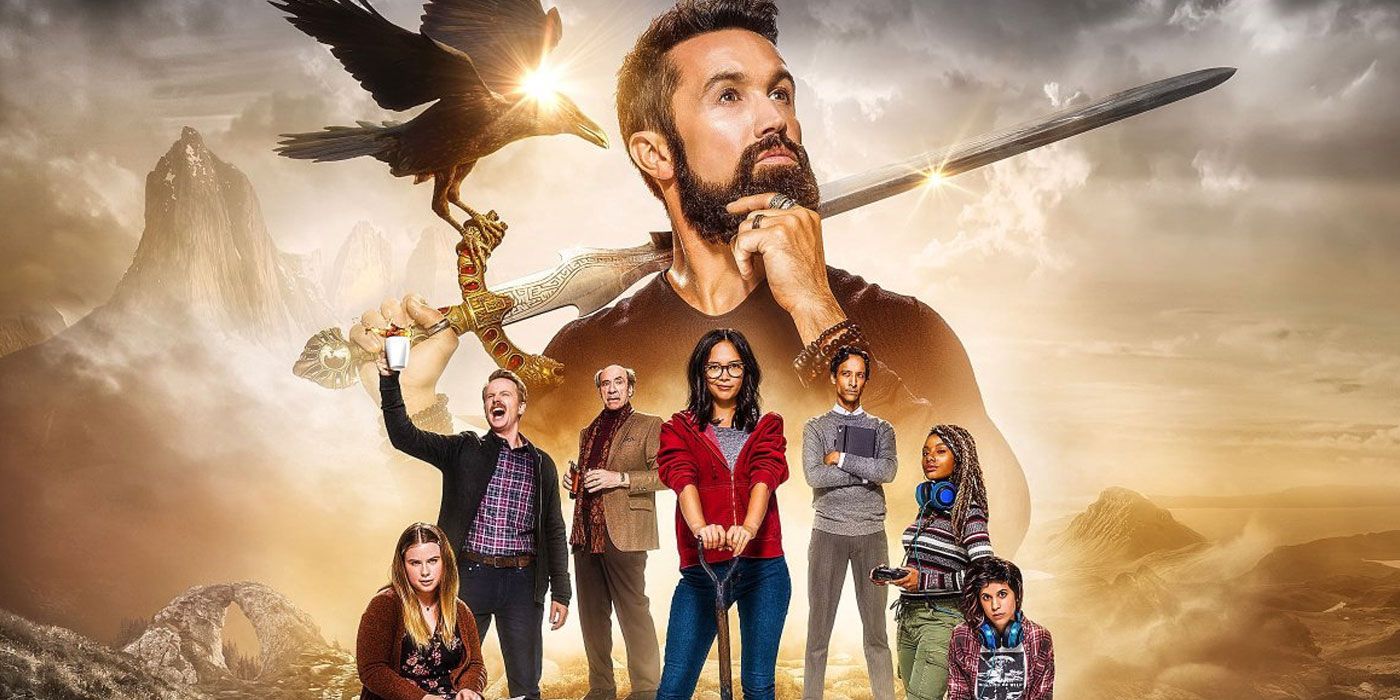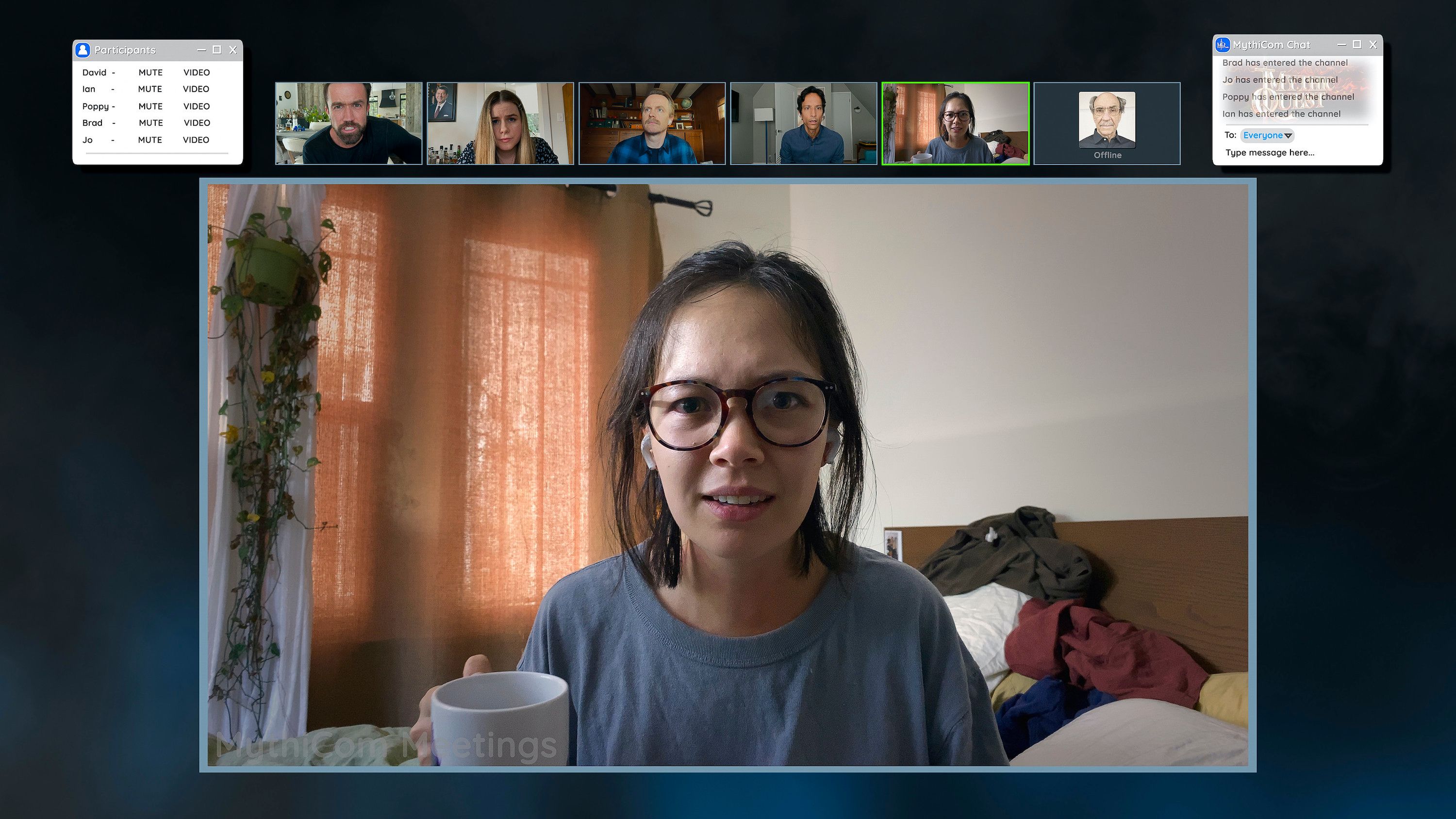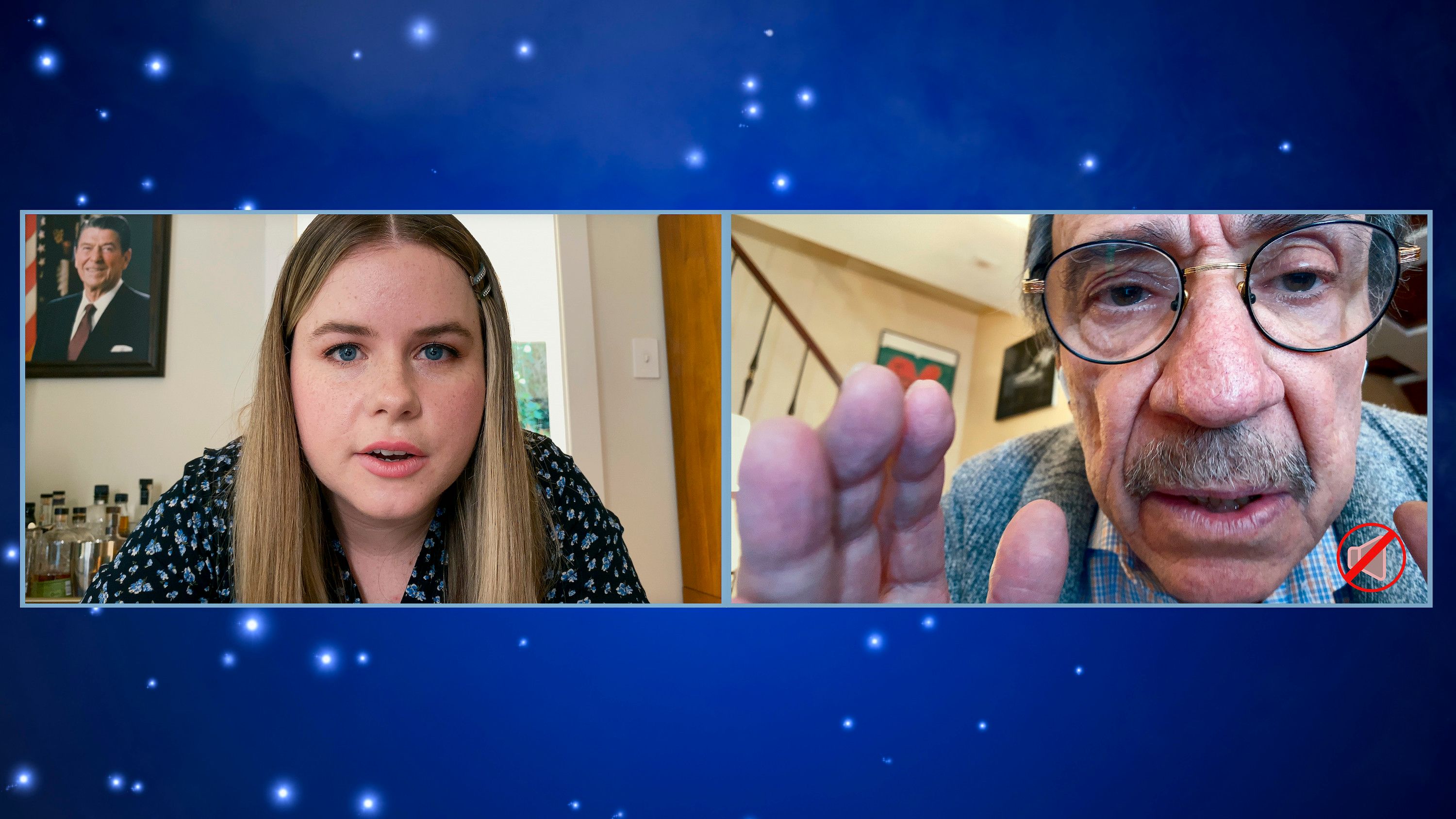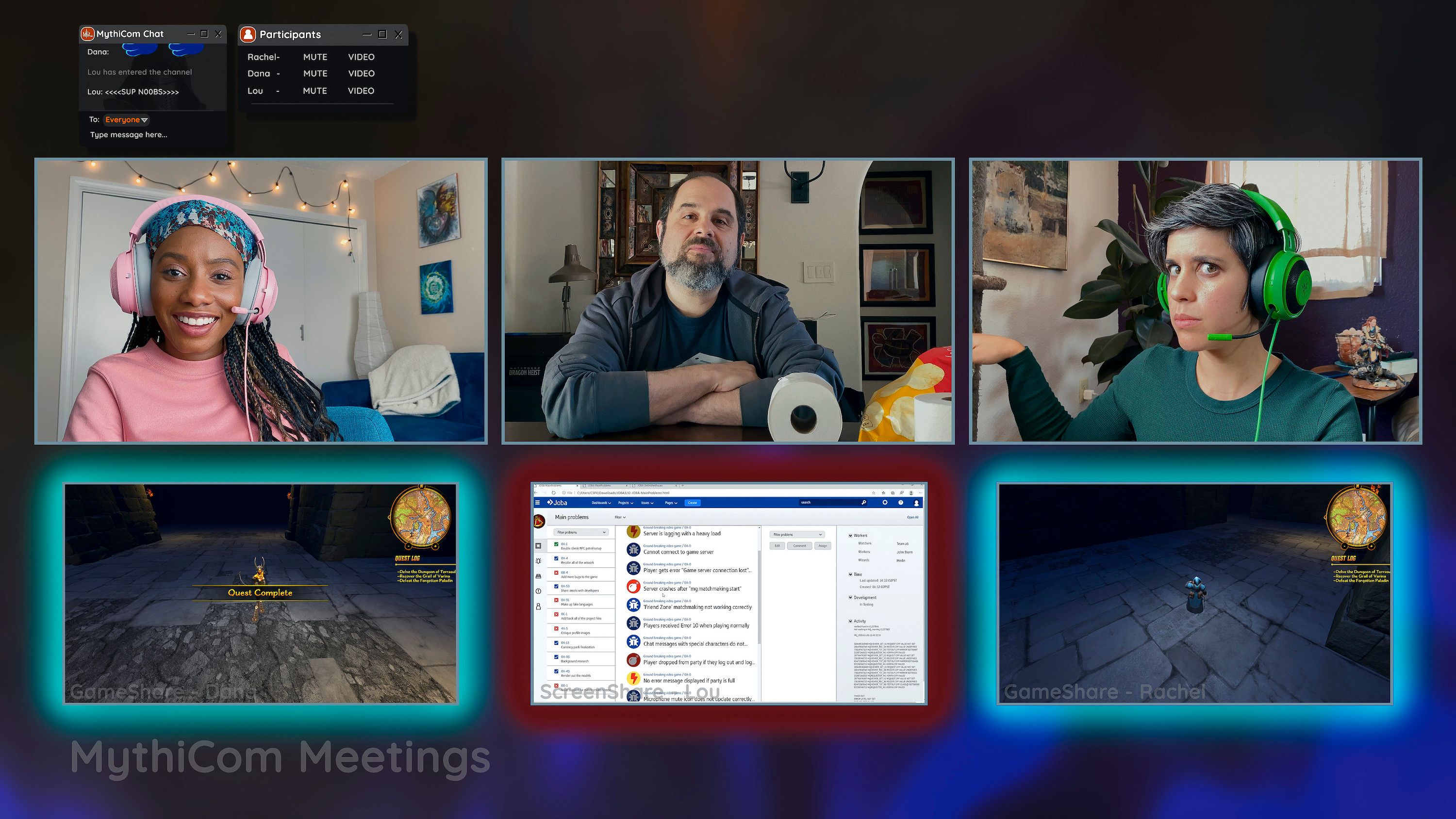WARNING: The following contains spoilers for Mythic Quest: Quarantine and Season 1, streaming now on Apple TV+.
With so many TV shows scrambling to find their place in the new socially distanced world, Apple TV+’s Mythic Quest: Quarantine has broken through the noise with a special episode that embraces the desktop film subgenre, captures the “new normal” of daily life and shines a light on mental health issues.
Ever since the COVID-19 pandemic began and the world was forced to hit the collective pause button, entire industries have struggled to adapt. Concerts are now being held online, traditional sporting events have given way to esports and scripted TV series have tried to embrace quarantined storytelling.
Saturday Night Live, for example, has gone completely digital, Parks and Recreation reunited for a stay-at-home special and seemingly every talk show host has his or her own version of an at-home variety show. However, in most cases, these attempts feel half-hearted or gimmicky, reminding viewers of what they’re missing rather than what can be gained through this new medium.
That is, until the Rob McElhenney-led Mythic Quest submitted its own entry into the genre.
Mythic Quest: Quarantine written by Megan Ganz, David Hornsby and Rob McElhenney does a remarkable job of capturing the strengths and struggles of working from home. From the overcomplexity of setting up a simple video conference to the basic human need to interact with others, Mythic Quest shows how different personalities cope or fail to cope with their circumstances.
In fact, each character has their own challenge to overcome. C.W. is in a battle to understand the technology he’s now forced to rely on, Ian is constantly uploading videos of himself to satisfy his craving for attention and praise and Carol has to manage the childlike behavior of her coworkers while simultaneously leading her actual children’s homeschooling.
However, the most poignant struggle of all is that of Poppy Li, played by Charlotte Nicdao. Poppy is the lead engineer and -- as of the Season 1 finale -- the co-creative director for the series' titular game. The character takes great pride in her work, deriving much of her own identity from what she is able to produce, which is why her sudden promotion at the end of Season 1 was such a triumph and why her sudden lack of work in Quarantine takes such a toll.
Throughout the episode, viewers watch as Poppy begins to show signs of depression. Her initial disregard for personal hygiene can easily be written off as someone enjoying their work-from-home status, but as her workload slows, she begins to turn inward, refusing to answer calls or turn on her camera during meetings.
Typically self-absorbed Ian starts to notice this behavior and becomes increasingly worried. He even expresses concern during his call with human resources and eventually insists Poppy show herself on camera. When she does, the true emotional weight of her situation is revealed. Sitting in the dark, eyes swollen from crying, Poppy finally admits to Ian that she is suffering from feelings of isolation brought on by mandated social distancing.
“I don’t think I’m doing very well,” she tells him. “All my family are thousands of miles away and I don’t have any friends and I’m just alone.” The emotional turn is enough to leave any viewer speechless. What is a traditionally comedic episode until this point is suddenly saturated with emotional significance, proving this special episode is more than a stunt, but a personal and purposeful installment in Mythic Quest.
Following Poppy’s confession, Ian tells her to open her door, revealing he has come to check on her in-person. There is a tearful embrace made all the more meaningful by its forbidden nature in the time of COVID-19. By disregarding the rules of social distancing, this moment will undoubtedly invite its fair share of critics, but it also reminds the viewer just how essential human connection truly is.
The next time Poppy appears, she has showered, washed her hair and is smiling from ear to ear. It feels like a genuine cause for celebration, perhaps even more than the epic Rube Goldberg stunt that immediately follows.
With so many TV shows attempting to make the most of difficult circumstances, Mythic Quest: Quarantine justifies its own existence with a story that sheds light on the emotional crisis facing the world. As people continue to deal with enforced solitude, it is essential that we make whatever connections we can and check on each other whenever possible.
If you or someone you know may be struggling with suicidal thoughts, you can call the U.S. National Suicide Prevention Lifeline at 800-273-TALK (8255) any time day or night.




